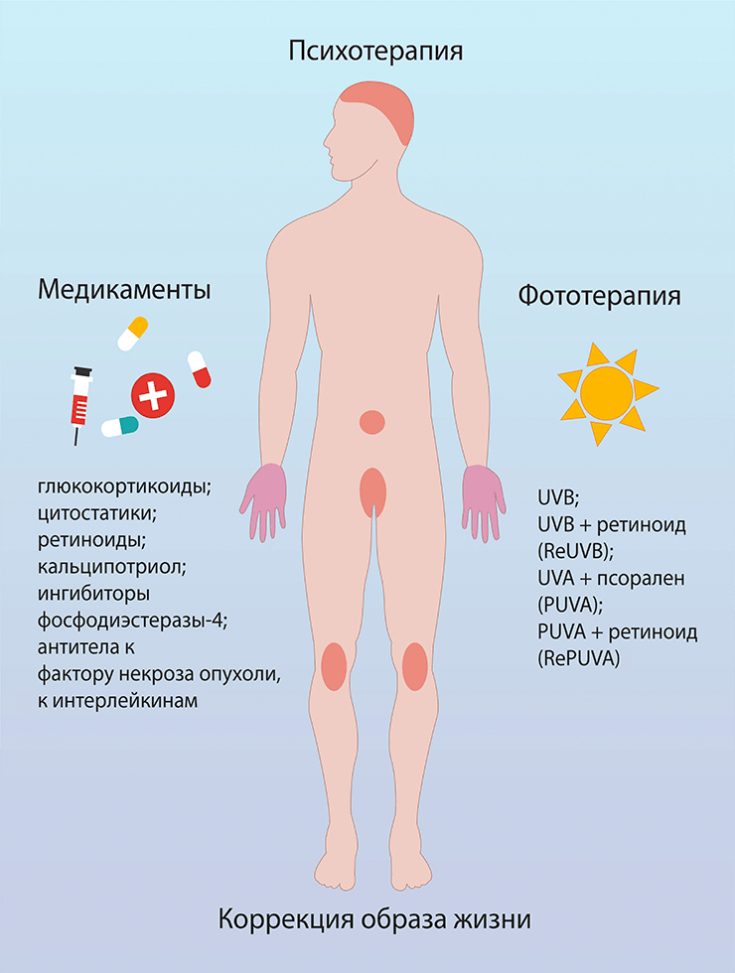Psoriasis is a chronic, inflammatory skin disease that affects 2 to 4% of the world's population. It can debut at any age, but there are peaks of first-time psoriasis - from 16 to 22 years, and from 57 to 60.
It is hypothesized that the two subtypes of psoriasis, namely, early and late, may be due to changes in different genetic loci, which explains the difference in their clinical course and response to the therapy used.
On estet-portal.com read about the differences in the treatment of early and late psoriasis.
Psoriasis therapy: selection of treatment depending on age
There are two main subtypes of psoriasis - early psoriasis (40 years of age). The division of the disease into these two categories is important in clinical practice, since each subtype has its own characteristics of the course, and, as a result, requires a different approach in the selection of therapy.
Every day there are more and more methods of treating this disease, and therefore the primary task of the doctor is to select the most appropriate individual treatment for each patient.
News about psoriasis disease: the possibilities of the immune system and the impact on it
Main differences between early and late subtypes of psoriasis
Modern studies show that patients with early psoriasis are more likely to experience relapses of the disease, and they also have more involvement of a large surface of the body and nails than patients with a late subtype of psoriasis.
Early psoriasis is more common among the male population, as well as in patients with a burdened family history.
For the latest articles, read Facebook!
The response to treatment in these two groups is also different. Patients with early psoriasis are more difficult to treat and require longer and more intensive treatment.

Drugs for the treatment of psoriasis in early and late disease subtypes
Early subtype of psoriasis is characterized by a more aggressive course, and therefore may require systemic therapy.
Recent studies show that treatment with adalimumab, a monoclonal antibody drug, can achieve a better therapeutic effect in patients with early psoriasis.
Late psoriasis responds much better to treatment, so the need for systemic therapy of the disease occurs much less frequently. However, patients with this disease subtype respond best to treatment with methotrexate, etanercept (a tumor necosis factor inhibitor) and infliximab (monoclonal antibodies).
Thus, the use of monoclonal antibodies is becoming more and more popular in the treatment of psoriasis. However, it should be remembered that in the active stage of the disease, therapy should be as gentle as possible. After all, any new method that is just beginning to accumulate evidence base can provoke life-threatening consequences.
Read also: Psoriasis treatment: experience with vitamin D







Add a comment